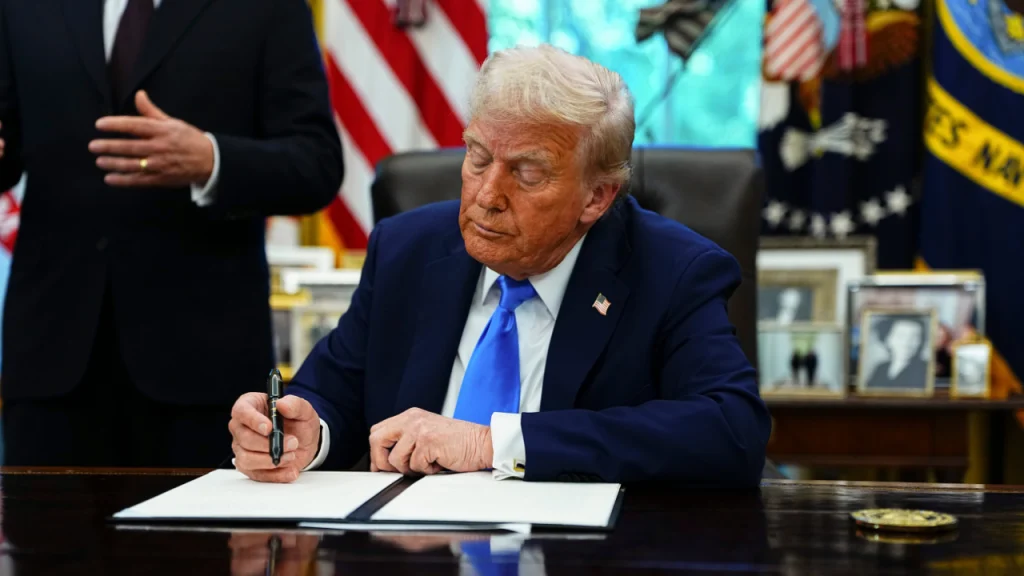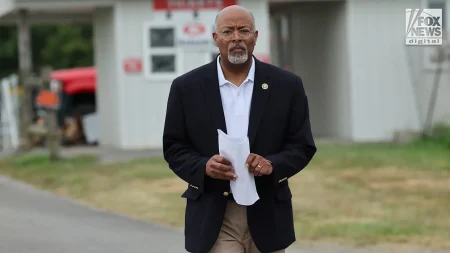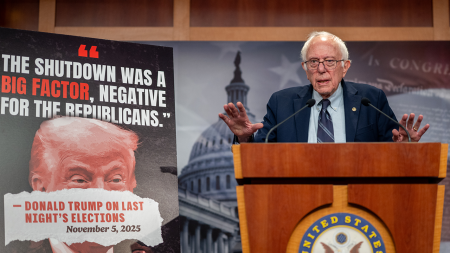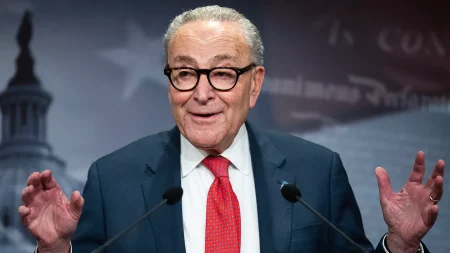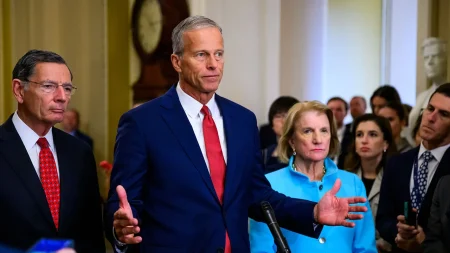Understanding the H-1B Visa Controversy: Between American Jobs and Global Competitiveness
The H-1B visa program has emerged as one of the most contentious immigration issues in American politics, sitting at the intersection of workforce development, national security, and economic competitiveness. In September, President Donald Trump issued a proclamation condemning what he called the “systemic abuse” of the program, claiming it enables the “large-scale replacement of American workers” to the detriment of the nation’s economic and national security. His administration instituted a substantial $100,000 application fee for companies seeking these visas, effective September 2025, a move that has ignited fierce opposition from business leaders, particularly in the technology sector. The controversy has created strange political alliances, with critics spanning from Trump to Senator Bernie Sanders, while supporters include tech entrepreneurs like Elon Musk and traditional business organizations like the U.S. Chamber of Commerce, which has filed a lawsuit challenging the new fee structure.
The H-1B visa is a non-immigrant work visa designed to allow U.S. companies to employ foreign workers with specialized skills for an initial three-year period, extendable to six years. According to U.S. Citizenship and Immigration Services, these visas are intended for individuals of “exceptional merit and ability” who possess at least a bachelor’s degree in a relevant field. Though officially capped at 65,000 visas annually, with an additional 20,000 for those with advanced degrees, the actual number is higher because universities and non-profit research organizations are exempt from this cap. The Pew Research Center estimates that approximately 400,000 H-1B visa applications were approved last year during the Biden administration. The program has a distinct demographic profile, with 73 percent of visa holders coming from India, followed by China at 12 percent, while no other single country accounts for more than two percent of recipients.
The technology industry has become the predominant beneficiary of the H-1B program, accounting for approximately 60 to 70 percent of all new applications in recent years. Other significant sectors utilizing these visas include consulting and professional services, engineering and manufacturing, healthcare and medical research, and higher education. Critics argue that rather than fulfilling its original purpose of attracting exceptional global talent, the program has devolved into a mechanism for companies to import cheaper foreign labor, suppress wages, and displace American workers. This criticism has prompted bipartisan reform efforts, including legislation reintroduced in September by Democratic Whip Dick Durbin and Republican Judiciary Chair Chuck Grassley aimed at closing loopholes and protecting American workers. At the state level, Florida Governor Ron DeSantis has taken action against what he sees as universities exploiting the program, directing the state’s Board of Governors to ensure higher education institutions prioritize American graduates rather than “importing foreign workers.”
Defenders of the H-1B program, including Elon Musk, contend that it is essential for maintaining America’s competitive edge in a global economy. Musk, who attributes his own presence in America to the program, has pledged to “go to war” in its defense, though he acknowledges the need for “major reform,” suggesting significant increases in minimum salary requirements and additional costs for hiring overseas. The business community emphasizes the program’s importance in global competition, particularly as countries like China launch similar initiatives to attract international talent. The U.S. Chamber of Commerce has been vocal in its support, arguing that restricting the program could “inflict serious harm upon many American companies” and hinder America’s ability to remain competitive in fields requiring specialized expertise, particularly in STEM (science, technology, engineering, and mathematics).
President Trump’s September proclamation “Restriction on Entry of Certain Nonimmigrant Workers” articulated his administration’s view that the H-1B program has been “deliberately exploited” to replace rather than supplement American workers with “lower-paid, lower-skilled labor.” He argued that this abuse has artificially suppressed wages, creating disadvantageous labor market conditions for American citizens while simultaneously making it more difficult to attract and retain the highest-skilled temporary workers. Beyond the controversial $100,000 fee, Trump directed his administration to initiate rulemaking to prioritize the admission of “high-skilled and high-paid aliens.” Additionally, the Department of Homeland Security is narrowing the definition of “specialty occupation,” increasing worksite compliance inspections, and requiring direct employer applications to prevent contract outsourcing arrangements that have been criticized as undermining the program’s intended purpose.
The future of the H-1B visa program remains uncertain as legal challenges mount and political divisions persist. The U.S. Chamber of Commerce’s lawsuit against the Trump administration argues that the new $100,000 fee is unlawful because it overrides provisions of the Immigration and Nationality Act, particularly requirements that visa fees be based on actual government processing costs. The Chamber contends that the fee would make the program “cost-prohibitive” for many employers, especially startups and small to mid-sized businesses. As this legal battle unfolds, the debate continues to reflect broader tensions in American society about immigration, economic opportunity, and global competition. With passionate advocates on both sides, it remains to be seen whether Congress will eventually step in with comprehensive legislative reform that balances protecting American workers with maintaining the nation’s ability to attract global talent in an increasingly competitive international landscape.





